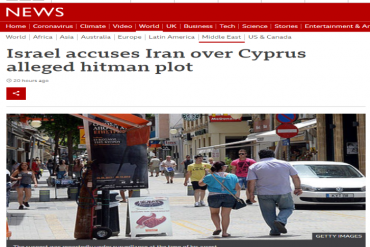1) The ITIC reports on the surrender of a senior ISIS figure in the Sinai Peninsula.
“Al-Qadi is considered the second or third most important in the Province after the Emir (“commander”) and possibly one other person, making him the most senior figure in the Sinai Province to surrender to the Egyptian authorities so far. His surrender will have implications and consequences for the activities of the Sinai Province. It is currently in difficulty, suffering from a lack of funds and equipment, the result of the Egyptian army’s operational successes and cooperation with the tribal militias.”
2) At the Lawfare blog Matthew Levitt discusses The Assad Regime’s Business Model for Supporting the Islamic State.
“The regime of Bashar al-Assad consistently supported the Islamic State (ISIS) when the group controlled significant amounts of territory, even as the regime struggled to retake control of Syrian territory from the various rebel groups engaged in the Syrian civil war, including ISIS. One key tactic of the regime’s strategy was to focus its military efforts against the moderate Syrian rebel groups opposing the Assad dictatorship, in particular the Free Syrian Army (FSA), and not the Islamic State group.”
3) Anat Ben Haim analyses the rebuilding of Syria’s military at the INSS.
“A decade of fighting in Syria showed that the primary potential threat to the Assad regime is internal, not a conflict with Israel. The Syrian military is therefore being rebuilt as a motorized infantry army, capable of moving combatants quickly to various areas around the country. At the same time, there is an operational need to improve defense against airstrikes, mainly by Israel. However, the deep ongoing economic crisis; the continued fighting inside Syria, which commands attention and resources; the competition between Russia and Iran over rebuilding the Syrian military; and the poor recruitment potential in Syria all have a negative impact on military buildup efforts. The Syrian army’s helplessness, as shown in recent clashes in the Daraa district, highlights the regime’s dependence on both Russia and Iran and its proxies. This dependence is likely to have a direct effect on Israel’s security situation.”
4) The UKLFI Charitable Trust presents a recording of a discussion with Professor Orde Kittrie about ‘The Accusation of Israel as an Apartheid State’.
“A new UN Commission of Inquiry of the UN Human Rights Council (UNHRC) is poised to accuse Israel of apartheid. Professor Kittrie discusses this Inquiry and its mandate, and the potential relationship with prosecutions by the International Criminal Court (ICC). The mandate’s reference to apartheid was apparently inspired by a lengthy report, accusing Israel of committing the crime of apartheid, published by Human Rights Watch (HRW). However this report is based on a definition of “apartheid” which is not found in the ICC’s Statute or the International Convention on Apartheid. Professor Kittrie discusses the different definitions of apartheid, reasons why the apartheid charge is wrong even under HRW’s definition, and options for responding.”



